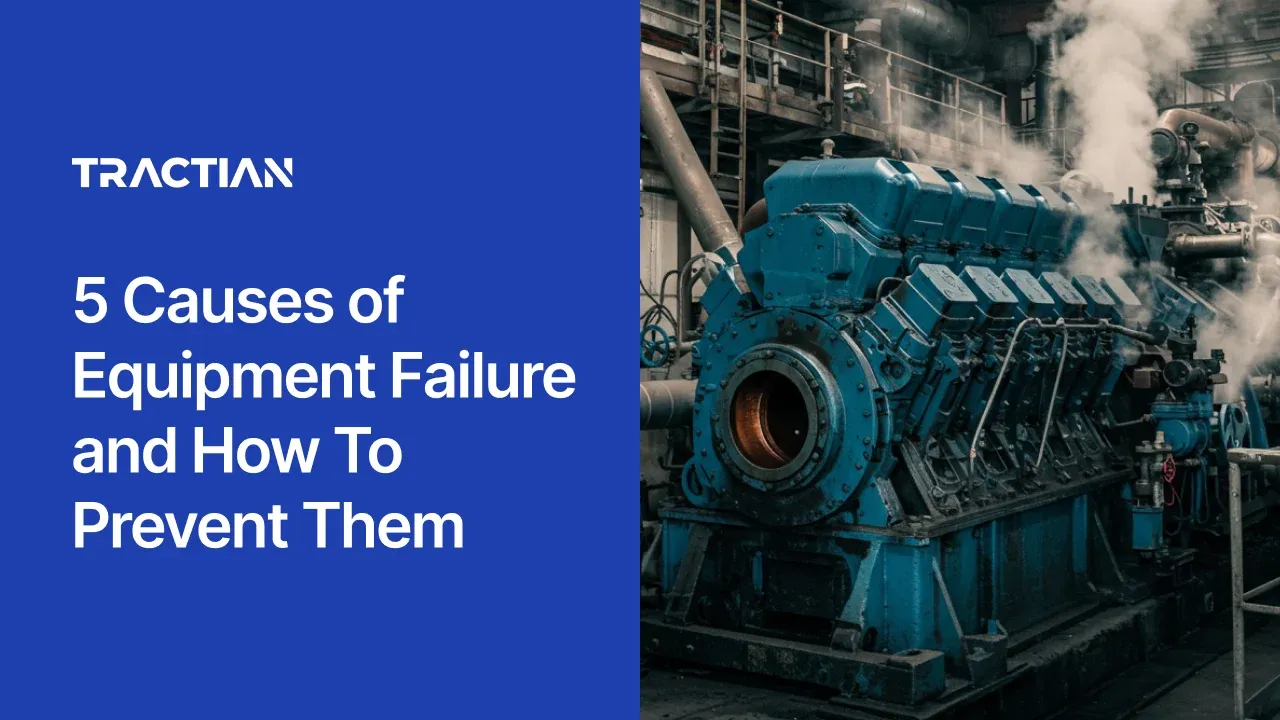
Condition Monitoring vs Predictive Maintenance: Key Differences Explained
Condition monitoring detects problems now. Predictive maintenance forecasts failures weeks ahead. Learn how each strategy works and which fits your operation.
Keep readingLatest Articles

Top 5 Predictive Maintenance Sensors in 2026
Compare the best predictive maintenance sensors for industrial teams in 2026. Learn about features, capabilities, notable downsides, and industry fit.
Michael Smith

Top 3 Fluke Connect Alternatives in 2026
Fluke Connect delivers wireless condition monitoring through the 3561 FC and 3563 Analysis Vibration Sensor systems paired with Fluke Connect software and eMaint CMMS integration. The company leverages its measurement-instrument heritage to offer vibration sensors with piezoelectric and MEMS technologies, capturing data at frequencies ranging from 10 Hz to 10,000 Hz, depending on the model. Fluke's solution combines hardware, software, and analyst services in a package that requires configurat
Michael Smith

Top 3 Augury Alternatives in 2026
Augury’s Halo R4000 sensor platform captures vibration, temperature, and magnetic field data to detect both mechanical and electrical anomalies in industrial equipment. For those who want ultrasound capabilities, they require a separate sensor. The platform promises guaranteed diagnostics backed by insurance coverage up to $150,000 per machine annually. However, knowing how much Augury would cost would require engaging with their sales team and this can complicate budgeting and total cost calc
Michael Smith

Get Every Repair Right with AI SOPs + Document Analysis
Improve first-time fix rate maintenance by giving every technician the exact, approved steps for each asset, ensuring accuracy, consistency, and quality in repair execution. Leaders track first-time fix rate maintenance because it determines how often a problem is solved on the first visit, without callbacks or rework. Every repeat visit compounds downtime, increases labor and parts costs, and exposes quality declines that can ripple through the production process. Audit stress increases when i
Billy Cassano

Turn Rookies into Pros with AI SOPs + Document Analysis
A new hire steps onto the floor and finds three versions of the same procedure. One lives in a vendor PDF. One is a photo of a whiteboard. One is a hand-scribbled note in a binder. Senior techs are busy and can’t hand-hold the rookie. Questions pile up, first-time fixes fail, and downtime demands attention in the form of rework. With 74% of companies reporting a shortage of skilled workers, teams are filling gaps with rookies who need clear guidance at the machine, not after the fact. Shadow t
Billy Cassano

Fix It Fast, Fix It Right with AI SOPs + Document Analysis
Agile maintenance teams plan in short cycles, set clear sprint goals, and adjust quickly when priorities shift. That cadence breaks when diagnosis drags. Complex troubleshooting slows standups, pushes PMs off the calendar, and keeps work-in-progress stuck while crews wait for the next best step. If the goal is rapid, repeatable execution, speed to understanding the problem matters as much as speed with the wrench. Unplanned downtime costs manufacturers roughly $50 billion per year. However, pr
Billy Cassano

6 Reasons to Use Preventive Maintenance
Explore how preventive maintenance reduces downtime, cuts costs, and extends asset life to keep industrial operations safe, efficient, and compliant.
Michael Smith

How to Reduce Unplanned and Planned Downtime
Learn key strategies to cut downtime, improve MTTR and OEE, and plan maintenance smarter. Discover how condition monitoring drives reliability.
Michael Smith

5 Benefits of Using Technology in Maintenance
Explore 5 practical benefits of using technology in maintenance, from reducing equipment failures to improving operational efficiency and reliability
Billy Cassano

5 Causes of Equipment Failure and How To Prevent Them
Discover the 5 main causes of equipment failure and learn some practical strategies that can prevent downtime and boost operational efficiency.
Michael Smith

How to Use Bearing Vibration Analysis to Prevent Failures
Learn how bearing vibration analysis helps detect faults early, monitor wear, and prevent equipment failure using data-driven predictive strategies
Billy Cassano

Condition Monitoring: What It Is, Benefits, and How to Apply
Learn how condition monitoring works, explore key techniques, and see how it helps prevent failures, reduce costs, and boost industrial reliability.
Michael Smith
Comprehensive free materials for your maintenance and reliability
Get free access to materials for increased productivity and an optimized maintenance routine.